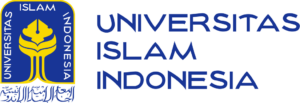Sustainable Cities and Communities

Universitas Islam Indonesia (UII) is deeply committed to preserving and promoting cultural heritage, aligning its efforts with Sustainable Development Goal 11 (Sustainable Cities and Communities). The university recognizes the importance of cultural heritage in fostering a sense of identity, community, and continuity. As part of this commitment, UII integrates heritage conservation and arts engagement into campus life, providing students, faculty, and the wider community with opportunities to engage with and preserve their cultural legacy. Through these initiatives, UII not only enriches the educational experience but also contributes to the cultural vitality of the surrounding community.
In addition to its cultural preservation efforts, UII has embraced sustainable practices across multiple areas of its operations. The university is committed to environmental responsibility and actively promotes sustainability in all aspects of its activities. This includes sustainable building practices, waste management initiatives, and energy-efficient solutions, ensuring that UII’s campus is a model for responsible environmental stewardship. By implementing these sustainable practices, UII sets an example for its students and the broader community, demonstrating the importance of balancing development with environmental care.
UII’s commitment to sustainability also extends beyond the physical campus to include community support and sustainable urban development. The university works closely with local communities, providing resources, education, and support for sustainable practices that benefit both the environment and local livelihoods. Through partnerships with local governments, businesses, and NGOs, UII is helping to create sustainable urban spaces that are resilient, inclusive, and culturally rich. This approach reflects the university’s broader commitment to contributing to the achievement of SDG 11 by promoting sustainable and thriving cities and communities.
By integrating cultural heritage conservation with sustainable practices, UII is working toward a more holistic approach to urban development, where sustainability and cultural preservation go hand in hand. This commitment not only enhances the university’s campus life but also contributes to building stronger, more sustainable communities that are better equipped to face the challenges of the future.
UII’s Support for Arts and Heritage
Universitas Islam Indonesia (UII) has taken a significant step in preserving cultural heritage by integrating the 10th-century Kimpulan Temple into its campus environment. Discovered within UII’s grounds, this ancient temple has been carefully preserved and incorporated into the library complex. This thoughtful integration highlights the university’s commitment to safeguarding historical artifacts while fostering an appreciation for local heritage.

The presence of the Kimpulan Temple within the library creates a unique opportunity for students and visitors to engage directly with Yogyakarta’s rich history. It serves as a tangible connection to the past, offering insights into the region’s cultural and spiritual traditions. By embedding this heritage site into an academic setting, UII bridges the gap between education and cultural preservation.

This initiative also contributes to sustainable cultural tourism by making the temple accessible to the broader community. Through organized tours and educational programs, the university promotes awareness of the significance of preserving cultural landmarks. This approach aligns with UII’s mission to serve as a center for learning that values both innovation and tradition.
UII’s efforts in conserving the Kimpulan Temple underscore its dedication to protecting Indonesia’s historical legacy. By integrating heritage conservation into its campus development, the university not only honors the past but also enriches the educational experience for its community and beyond.
Universitas Islam Indonesia (UII) ensures that its libraries are accessible to students, lecturers, and staff, offering free access to a comprehensive range of academic and research resources. These libraries serve as vital hubs for learning, providing users with the tools and materials needed to excel in their academic pursuits.
To extend its services beyond the university, UII allows external visitors to access library facilities for a nominal fee. This inclusivity fosters community engagement and encourages knowledge-sharing among a broader audience, reinforcing UII’s commitment to educational outreach.


In addition to physical resources, UII enhances accessibility through open access to its published journals and digital publications via UII Press. This initiative democratizes knowledge, enabling researchers, academics, and the general public to benefit from UII’s scholarly contributions without barriers.

By combining free access for the university community, affordable services for external visitors, and open-access digital resources, UII’s libraries embody the institution’s mission to advance knowledge, promote inclusivity, and support lifelong learning.
Universitas Islam Indonesia (UII) proudly houses a museum dedicated to showcasing its pivotal role in Indonesia’s journey to independence. This museum serves as a valuable educational space where visitors can explore UII’s historical contributions and its enduring legacy in shaping the nation’s development.
Complementing this historical preservation, UII operates a radio station that actively promotes artistic and cultural expression. Through diverse programming, the station provides a platform for creativity and dialogue, enriching the cultural experiences of students and the wider community.
Together, the museum and radio station reflect UII’s commitment to preserving heritage and fostering cultural growth. These initiatives not only celebrate the university’s past but also contribute to an engaging and inclusive cultural environment.
By integrating history and modern cultural platforms, UII continues to inspire learning and creativity, reinforcing its role as a center for education and cultural enrichment in Indonesia.
Universitas Islam Indonesia (UII) has thoughtfully designed its campus to prioritize sustainability and biodiversity. The campus is home to expansive green spaces and water reservoirs, covering approximately 70% of the grounds. These natural areas not only promote environmental sustainability but also contribute to the overall quality of life for both the university and the surrounding community.
The inclusion of such green spaces creates a harmonious environment that encourages biodiversity, offering a peaceful and healthy atmosphere for students, faculty, and staff. These areas serve as accessible open spaces, supporting recreational activities, social interactions, and relaxation.
In addition to their ecological benefits, these natural spaces play a crucial role in enhancing the university’s commitment to environmental stewardship. The strategic placement of water reservoirs also contributes to the management of campus water resources, supporting sustainability initiatives.
Ultimately, UII’s campus design reflects a forward-thinking approach to creating an environmentally responsible and livable space. By fostering biodiversity and providing welcoming open areas, UII strengthens its commitment to sustainability while improving the overall campus experience for all.
Universitas Islam Indonesia (UII) actively fosters a vibrant campus culture by hosting a wide range of cultural performances throughout the year. These events showcase the diverse talents of students and feature various forms of artistic expression, including student-led choirs, theater groups, orchestras, and traditional dances such as the Acehnese Saman.
Such performances not only enhance the student experience but also contribute to the overall cultural richness of the campus. They provide students with opportunities to explore and showcase their creativity while promoting a sense of community and pride.
The university’s commitment to cultural activities extends beyond the campus, as these performances also engage the wider community. By hosting and participating in cultural events, UII helps preserve and promote Indonesia’s rich cultural heritage while encouraging inclusivity and cross-cultural understanding.
Through these vibrant cultural initiatives, UII enriches student life, supports artistic expression, and contributes to the cultural vitality of both the university and the broader community.
Universitas Islam Indonesia (UII) demonstrates a strong commitment to cultural preservation through the efforts of its Department of Architecture and library. These departments collaborate on projects aimed at documenting local architectural styles, ensuring that the unique design elements of the region are preserved for future generations.
In addition to preserving architectural heritage, UII’s library plays a key role in safeguarding historical texts and manuscripts. By carefully maintaining and cataloging these materials, the library helps ensure that the cultural and historical narratives of the area are accessible for research, education, and future reference.
These initiatives contribute to maintaining the cultural identity of the region while encouraging sustainable tourism. By highlighting the historical and architectural significance of the area, UII promotes responsible tourism that values and respects local heritage, benefiting both the university and the wider community.
Through its collaborative efforts in cultural preservation, UII not only protects valuable heritage but also enhances the region’s potential for sustainable growth and cultural appreciation, supporting the long-term well-being of the community.
UII’s Sustainable Practices
Universitas Islam Indonesia (UII) is taking significant steps in the field of sustainable transportation, particularly through its research on electric vehicles. One of the university’s notable initiatives is the development of electric motorcycle prototypes, aimed at providing an eco-friendly alternative to traditional fuel-powered vehicles.
This initiative aligns with UII’s broader commitment to reducing carbon emissions and fostering sustainable practices on campus. By developing electric motorcycles, UII is not only advancing technological innovation but also promoting cleaner, more sustainable transportation options for its community.
The electric motorcycle project serves as a tangible example of how UII integrates sustainability into its research and development efforts. It underscores the university’s dedication to addressing pressing environmental challenges while creating practical solutions that can be implemented on campus.
By focusing on electric vehicles, UII contributes to global efforts to reduce reliance on fossil fuels, demonstrating its leadership in sustainability and its role in advancing the green transition within the education sector.
The catalyst for Universitas Islam Indonesia’s (UII) mobility initiatives was a data-driven diagnosis. After discovering that 30% of community vehicles failed emission tests, we recognized the critical need to provide robust alternatives.
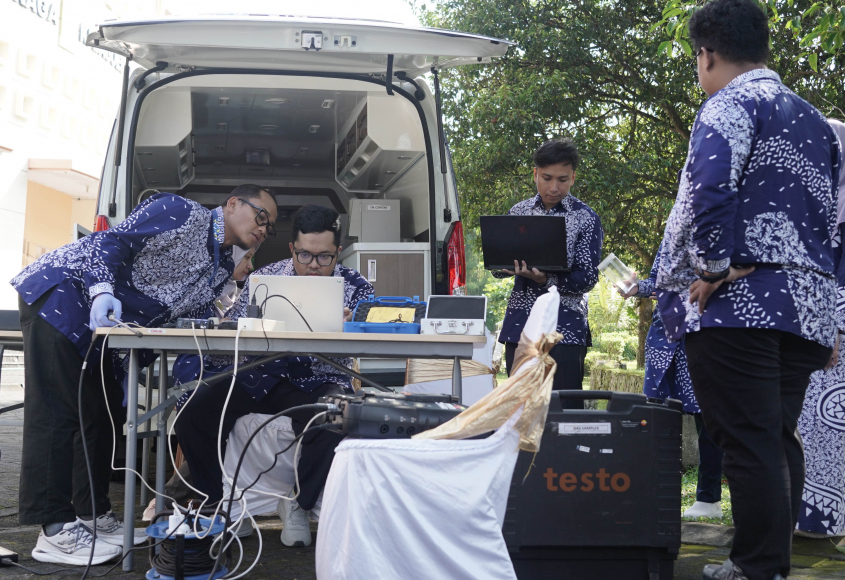
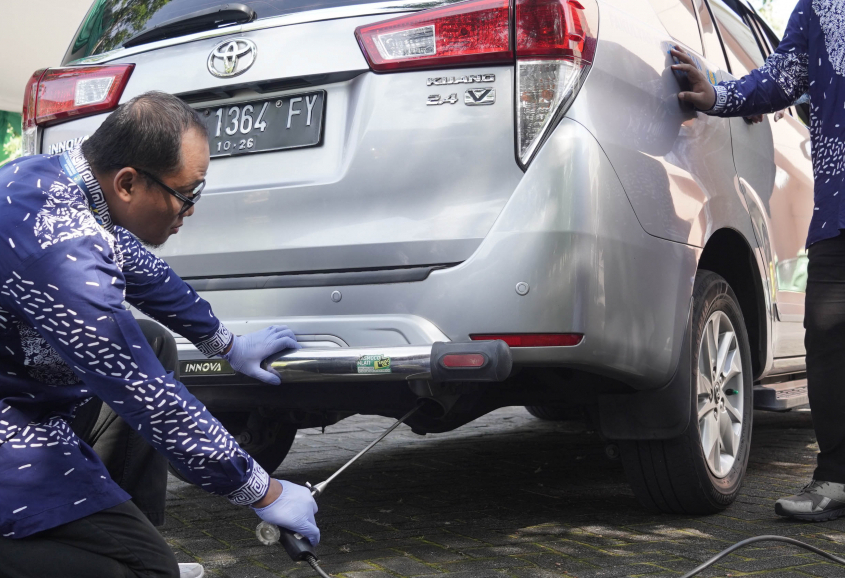
To that end, UII established a strategic sponsorship partnership with public transport providers. This partnership supports the city’s low-emission bus fleet, making sustainable mass transit an accessible and affordable choice for our students and staff, directly reducing reliance on private vehicles.

Complementing this mass transit solution, UII has invested in fostering a vibrant cycling culture. We provide dedicated bicycle parking, secure storage facilities, and integrated bike paths across campus. These initiatives are more than just infrastructure; they are an integral part of our strategy to encourage the use of bicycles as a healthy, eco-friendly transportation option, directly supporting our goal to reduce our carbon footprint.
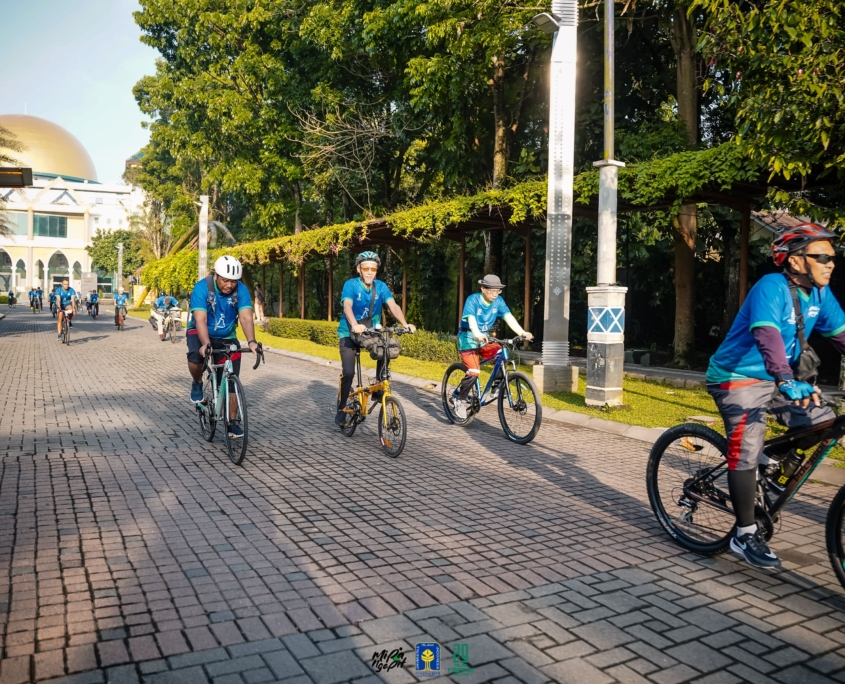
To complete our sustainable mobility ecosystem, UII has developed a campus-wide pedestrian plan. This ensures that walking is a safe, convenient, and prioritized option for navigating the campus. In synergy with managed parking zones that de-incentivize private vehicle use in core campus areas, this plan reinforces our commitment to non-motorized and shared transportation methods, reducing traffic congestion and promoting environmental sustainability.

Through this holistic approach, UII makes it easier for its community to adopt sustainable commuting practices. The tangible result of these concerted efforts is a 29.23% shift towards green transportation among participants, aligning with our broader commitment to fostering a greener, more sustainable campus environment.
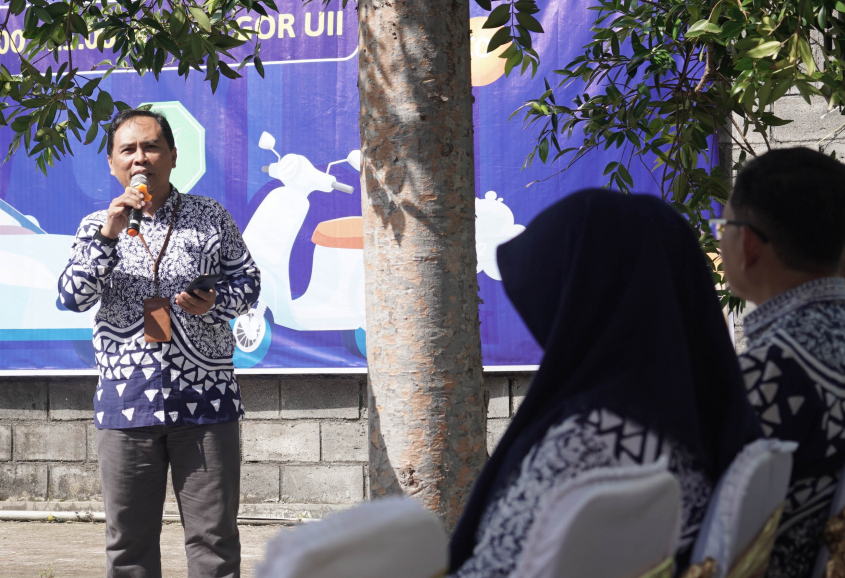
UII has adopted work-from-home and remote working policies, particularly during the COVID-19 pandemic, to ensure the well-being of its staff while maintaining operational efficiency. These policies offer flexibility for employees, promoting a healthy work-life balance and accommodating personal circumstances.
In addition to supporting employee well-being, these practices have an environmental benefit. By reducing the need for daily commuting, UII significantly decreases carbon emissions, contributing to a cleaner, more sustainable urban environment.
The university’s commitment to remote working is part of a broader strategy to reduce its carbon footprint and promote sustainable practices within the institution. This initiative aligns with UII’s dedication to fostering a more eco-friendly and sustainable campus.
By implementing such policies, UII not only supports its employees but also demonstrates its role in driving sustainable development within the university and the surrounding community.
UII has taken a proactive approach to addressing housing needs through the Graha Unisia Permai Estate project. This initiative provides affordable housing options to university employees, supporting their well-being and stability. By offering accessible housing, UII fosters a better work-life balance for its staff.
The Graha Unisia Permai Estate project not only serves as a housing solution but also contributes to the development of sustainable communities. UII is dedicated to creating an environment that supports the long-term welfare of its employees, promoting social sustainability.
This project aligns with UII’s broader commitment to staff welfare and sustainability. By providing affordable housing, the university ensures that its employees can live comfortably and focus on their professional roles without the burden of housing instability.
Through initiatives like the Graha Unisia Permai Estate project, UII demonstrates its dedication to creating a holistic and supportive environment for its staff, contributing to a sustainable and thriving campus community.
UII offers monthly housing subsidies of IDR 1 million to academically deserving international students, aiming to alleviate their financial burdens. This initiative provides crucial financial support to ensure that international students can focus on their studies without the concern of housing expenses.
By offering these subsidies, UII encourages a diverse and inclusive student body, enriching the university community with a range of perspectives and experiences. This program plays a vital role in fostering an international environment where students from different cultures can collaborate and learn together.
The housing subsidies also contribute to intercultural exchange, helping international students adapt to life in Indonesia and engage with local students. Through this initiative, UII nurtures a sense of community and mutual understanding among students from various backgrounds.
In addition to supporting academic success, the program enhances the overall student experience at UII, promoting diversity, inclusion, and global collaboration on campus.
UII’s campus master plan prioritizes pedestrian safety by ensuring that buildings are within walking distance of one another. This thoughtful design promotes easy access across the campus, reducing the need for motorized transport.
To further enhance accessibility, the campus is connected by covered walkways, providing shelter and convenience for students and staff in all weather conditions. These walkways ensure safe, uninterrupted movement across the campus, supporting a comfortable and efficient campus experience.
This pedestrian-friendly infrastructure fosters a healthier, more sustainable campus environment by encouraging walking and reducing carbon emissions. It also contributes to creating a welcoming atmosphere for all members of the UII community.
With this approach, UII is dedicated to offering a safe, accessible, and pedestrian-friendly campus that supports both environmental sustainability and the well-being of its students and staff.
The Center for Real Estate Study at UII’s Department of Architecture is dedicated to researching sustainable and affordable housing solutions. The center focuses on exploring innovative methods to provide quality housing options while maintaining environmental sustainability.
In addition to conducting research, the center collaborates with local authorities to address urban planning challenges and advocate for policies that support affordable housing. This partnership aims to bridge the gap between research and practical solutions that can be implemented in local communities.
By aligning its research with the needs of the wider community, the center ensures that its findings contribute to improving access to affordable housing for residents, especially in rapidly developing urban areas.
Through these efforts, UII is actively involved in shaping housing policies and promoting sustainable practices in real estate development, benefiting both the local community and the environment.
Most campus buildings at UII are designed in-house by the Department of Architecture, with a strong emphasis on adhering to local green building standards. This approach ensures that the buildings are not only functional but also environmentally conscious, reflecting the university’s commitment to sustainability.
While the buildings have not yet been formally certified, they incorporate key Green Building principles, such as energy efficiency, sustainable materials, and waste reduction. These features contribute to reducing the campus’s environmental impact and promoting a more sustainable campus environment.
The department’s focus on green building design reflects UII’s broader commitment to sustainability, ensuring that new structures align with best practices in environmental responsibility.
As UII continues to improve its campus infrastructure, there is a growing emphasis on sustainability, with plans to pursue formal green building certifications in the future, further solidifying the university’s environmental efforts.
UII has proactively minimized its environmental impact by prioritizing construction on previously developed or underutilized land. This strategy reduces the need to develop new natural areas, preserving existing ecosystems and promoting sustainable land use practices.
In addition, UII’s commitment to maintaining 70% of its campus as green space enhances biodiversity, contributing to the overall health of local ecosystems. These green spaces provide important habitats for wildlife and offer recreational areas for students and staff.
The preservation of extensive green areas also supports air quality improvements on campus, helping to create a healthier environment for the university community. The emphasis on green spaces plays a critical role in improving the overall sustainability of the campus.
By integrating these sustainable land use practices with the university’s broader environmental goals, UII ensures that its growth does not come at the expense of the natural world, but rather contributes positively to environmental conservation.

